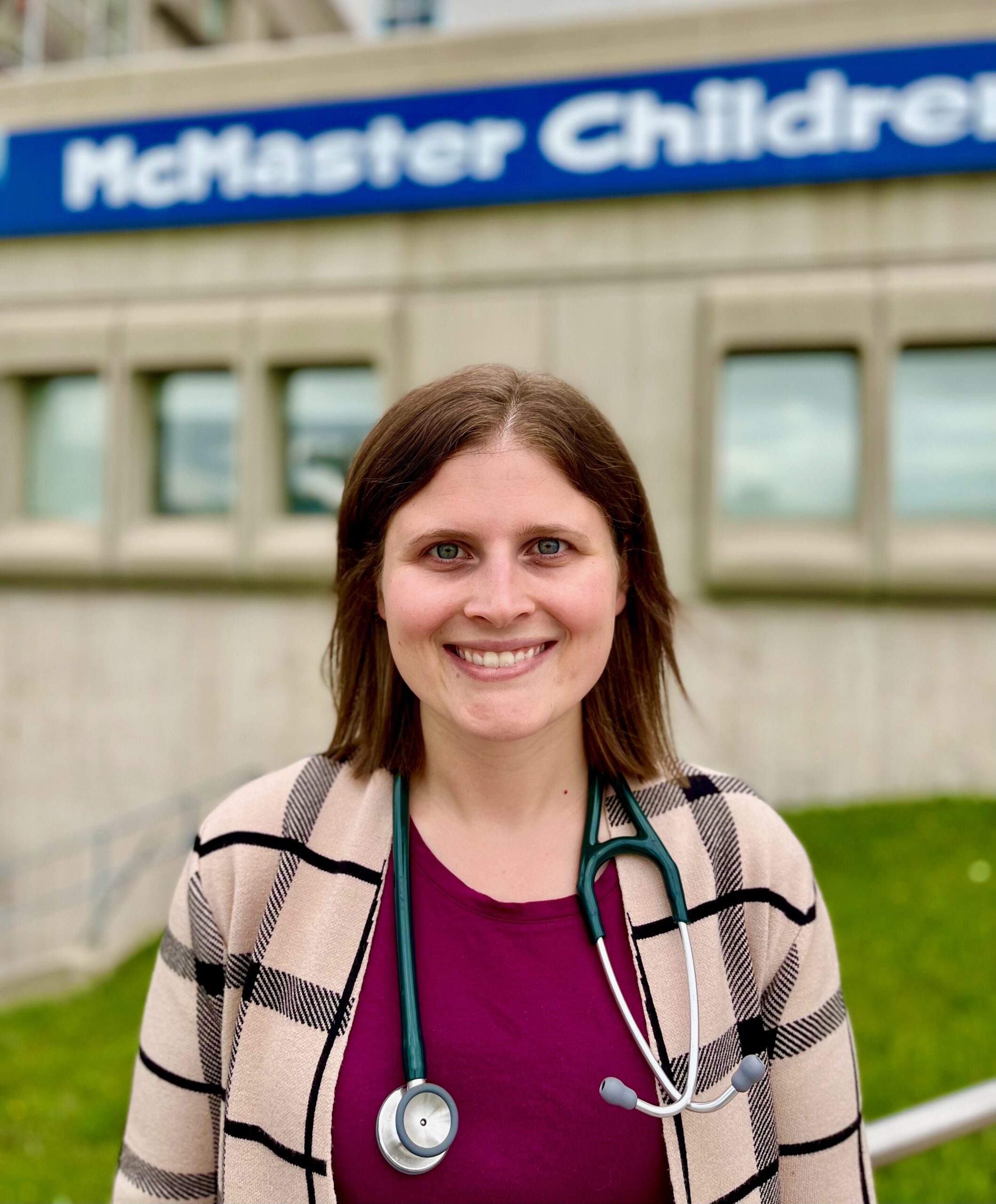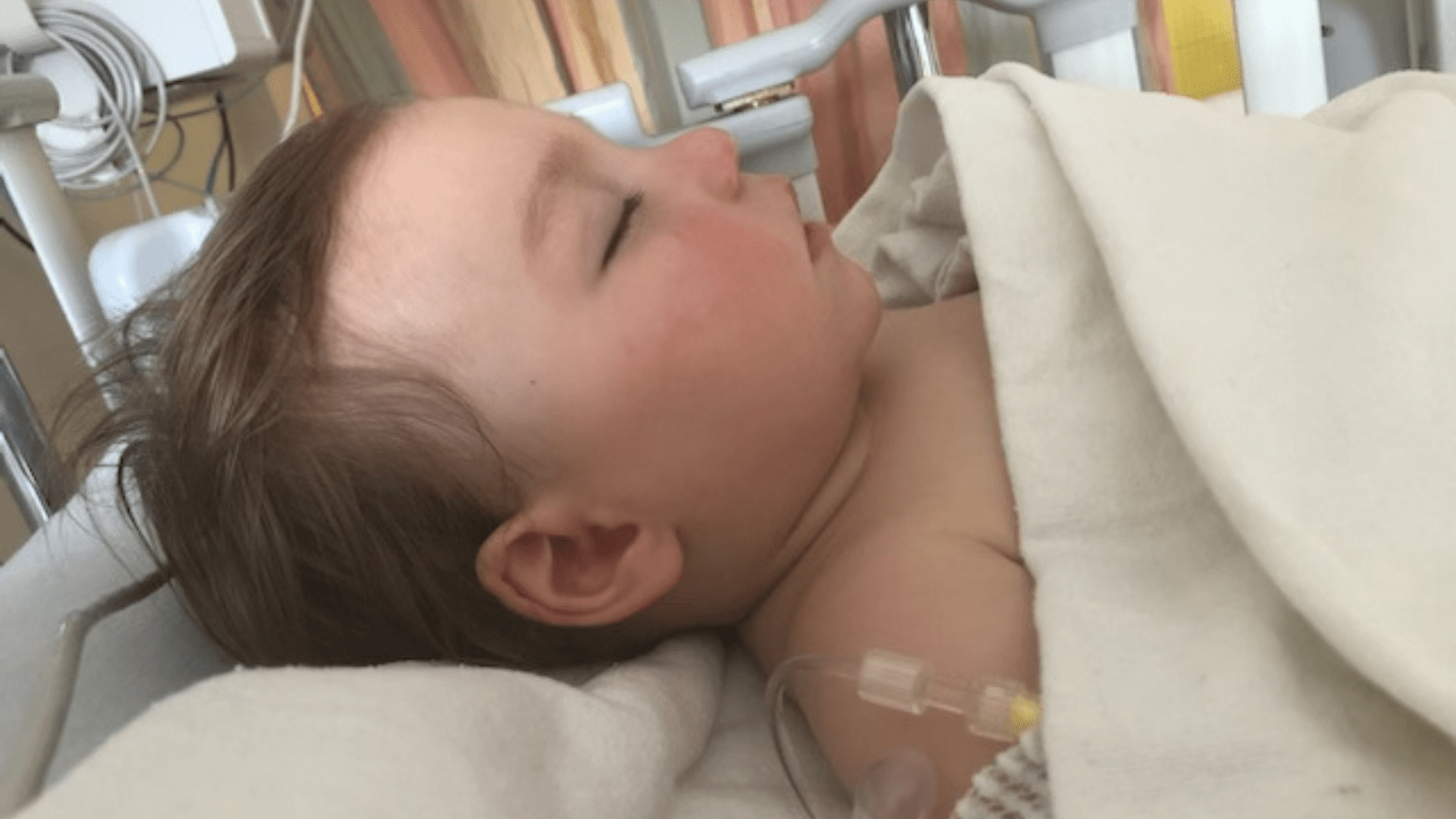Behind the White Coat: A conversation with Pediatric Oncology Fellow Kaitlyn Howden

To celebrate Childhood Cancer Awareness Month, we sat down with Dr. Kaitlyn Howden, an accomplished learner in McMaster University’s Pediatric Hematology and Oncology Fellowship Program. During our conversation, we explored what motivated her to become an oncologist, the future of cancer research, and guidance for aspiring learners considering a career in pediatric oncology.
Department of Pediatrics (PD): What inspired you to become a pediatric oncologist?
 Dr. Kaitlyn Howden (KH): When I was young, my mom had cancer. That initially inspired my academic interest and gave me insight into the family’s experience when one of the members gets a cancer diagnosis.
Dr. Kaitlyn Howden (KH): When I was young, my mom had cancer. That initially inspired my academic interest and gave me insight into the family’s experience when one of the members gets a cancer diagnosis.
Later, as a medical learner, I was inspired by various physicians and allied health members in the different pediatric oncology departments that I have spent time in across the country. These professionals shared their wisdom and experience with me and provided powerful examples of what I aspire to be as a clinician and researcher.
But the most significant motivation has come from patients and their families. Becoming a pediatric oncologist has allowed me to gain a deeper glimpse into the lives and personalities of the people we care for, and to journey alongside them as they go through intense highs and lows. The connections I get to form with families at McMaster Children’s Hospital pushes me to work hard at developing my skills as an oncologist, so that I have the tools to support them through whatever circumstances may come.
PD: What research advancements do you hope to see in your career?
KH: It’s a cool time to be a learner in oncology because of how far our knowledge has come and our understanding of the molecular pathways that influence how cancer behaves. We still have so much more to discover, but even now there are lots of new targeted drugs that are being developed and used on patients based on the specific genetic features of their specific cancer.
I’m interested in neuro-oncology. It can be tricky to manage certain brain tumors because of how damaging our therapy options can be to such a vital organ system and because there are still some tumor types for which we have not yet discovered an effective treatment.
As someone studying oncology, I’m excited by the prospect of a future where we have fewer kids dying of brain tumors and fewer kids with severe functional impairments because we have found better treatment avenues. Perhaps pathways and drugs that have only recently been discovered or are yet to be understood are going to be the ways that we accomplish such a goal.
PD: What advice would you give to future learners considering the Pediatric Oncology Fellowship Program?
KH: Working with patients who have cancer allows you to form deep professional bonds with families, which then leaves you vulnerable to experiencing trauma as you bear witness to the tough circumstances they go through. It is so important to build healthy priorities and habits in to your life and protect them no matter what stage you’re in. Being in touch with all aspects of what makes you a complete human not only matters but is imperative to prevent burning out or falling apart.
Learn more about McMaster University’s Pediatric Hematology and Oncology Fellowship Program.
News, Research in the MediaRelated News
News Listing

From seed to success: How philanthropy fuels child health research at McMaster
Funding, News, Research, Research in the Media
November 14, 2024

New funding boosts specialized neonatal care at St. Joseph’s Healthcare Hamilton
Announcements, Funding, News
November 13, 2024

Hamilton Health Sciences ➚
RSV hits close to home for McMaster Children’s Hospital emergency doctor
News
November 12, 2024
